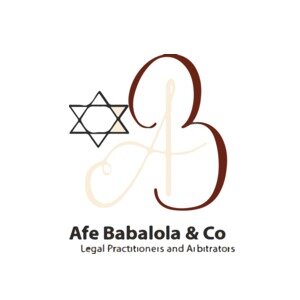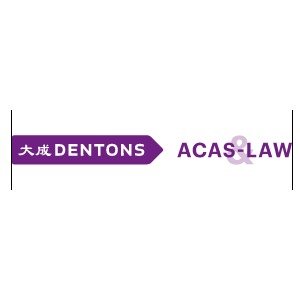Best Public-Private Partnerships (PPP) Lawyers in Port Harcourt
Share your needs with us, get contacted by law firms.
Free. Takes 2 min.
List of the best lawyers in Port Harcourt, Nigeria
About Public-Private Partnerships (PPP) Law in Port Harcourt, Nigeria
Public-Private Partnerships (PPP) in Port Harcourt, Nigeria, are collaborative agreements entered into between government entities and private sector companies with the purpose of financing, constructing, and operating infrastructure projects and services. These partnerships are often used in sectors such as transportation, energy, water supply, waste management, and public housing, helping to bridge the gap between public sector needs and available resources. In Port Harcourt, the PPP model aims to boost economic development and improve public service delivery by leveraging private expertise and resources.
Why You May Need a Lawyer
Engaging in a Public-Private Partnership project involves multiple legal considerations, from drafting contracts to ensuring compliance with regulatory requirements. Common situations where you may require legal help with PPPs in Port Harcourt include:
- Negotiating partnership agreements and resolving disputes between public and private partners
- Understanding government regulations and obtaining the necessary approvals or permits
- Drafting and reviewing complex contracts and concession agreements
- Conducting due diligence on project risks, land acquisition, and financing structures
- Advising on taxation, liability, intellectual property, and employment issues relating to the PPP project
- Ensuring the project aligns with environmental, health, and safety regulations
Local Laws Overview
In Port Harcourt, PPPs are guided by several layers of local, state, and federal legislation. At the federal level, the Infrastructure Concession Regulatory Commission (ICRC) Act sets the framework for PPP projects undertaken by the government. Rivers State, where Port Harcourt is located, has its own laws and regulatory agencies overseeing state-level PPP projects, such as the Rivers State PPP Law and the Rivers State Public-Private Partnership Office.
Key aspects of local laws relevant to PPPs include:
- Establishing regulatory bodies responsible for PPP oversight, such as the Rivers State PPP Office
- Providing guidelines for the procurement process, including project identification, bidding, and selection procedures
- Setting out the terms for concessions and operating agreements, including risk-sharing and termination rights
- Requiring environmental and social impact assessments for certain projects
- Ensuring transparency and competition in the selection of private sector partners
- Dispute resolution mechanisms for both contract interpretation and performance
Frequently Asked Questions
What is a Public-Private Partnership (PPP)?
A PPP is a legally binding arrangement between a government authority and a private sector company to provide public infrastructure or services, where both parties share risks, rewards, and responsibilities as defined in the contract.
Which types of projects commonly use PPPs in Port Harcourt?
PPPs in Port Harcourt are commonly used for road and bridge construction, water and sanitation projects, public markets, waste management facilities, and energy supply infrastructure.
Who regulates PPPs in Port Harcourt?
The regulatory framework involves both the federal Infrastructure Concession Regulatory Commission (ICRC) for federal projects, and the Rivers State Public-Private Partnership Office for state-level projects in Port Harcourt.
What are the main legal documents involved in PPPs?
The main legal documents include concession agreements, joint venture agreements, financing agreements, operation and maintenance contracts, and government approval or license documents.
Is a PPP the same as privatization?
No, PPPs involve sharing ownership and responsibilities between the public and private sectors, while privatization involves the outright transfer of public assets or services to the private sector.
How are risks shared between the government and private partner?
Risks are allocated based on each party’s ability to manage them. Typically, the private partner handles construction and operational risks, while the government manages regulatory and political risks.
What happens if there is a dispute between PPP partners?
Most PPP contracts specify dispute resolution mechanisms, which often start with negotiation or mediation and may proceed to arbitration or court if unresolved.
Are foreign investors allowed to participate in PPPs in Port Harcourt?
Yes, foreign investors can participate in PPP projects, although they must comply with applicable investment, immigration, and work permit laws.
What approvals are needed to start a PPP project?
Various approvals are usually required, including due diligence clearances, project feasibility studies, environmental and social impact assessments, and formal government and agency approval of the project.
How can a lawyer help with a PPP project in Port Harcourt?
A lawyer can assist with contract drafting and negotiation, regulatory compliance, risk assessments, community engagement, dispute resolution, and securing necessary government approvals.
Additional Resources
If you are considering a PPP project in Port Harcourt or need legal advice, the following resources and agencies may be helpful:
- Rivers State Public-Private Partnership Office: State agency for registering and regulating PPPs
- Infrastructure Concession Regulatory Commission (ICRC): Federal regulatory body providing guidelines and oversight
- Rivers State Ministry of Works: Provides technical input and policy supervision for infrastructure projects
- Nigerian Investment Promotion Commission (NIPC): Offers information on foreign investment laws and incentives
- Local law firms specializing in PPP, construction, and infrastructure law
Next Steps
If you need legal assistance with a Public-Private Partnership in Port Harcourt, start by identifying the specific nature of your project and potential legal challenges. Gather all available documentation, including project proposals, correspondence with government agencies, and any preliminary agreements. Contact a reputable lawyer or law firm experienced in PPP matters for a consultation. Clearly outline your goals and concerns, and seek advice on the regulatory process, risk management, contract negotiation, and dispute resolution. Depending on your needs, you may also want to reach out to relevant government agencies or PPP offices in Rivers State for guidance on required procedures.
By understanding the essentials of PPP law in Port Harcourt and engaging qualified legal counsel, you can help ensure your project is successful, compliant, and beneficial for all parties involved.
Lawzana helps you find the best lawyers and law firms in Port Harcourt through a curated and pre-screened list of qualified legal professionals. Our platform offers rankings and detailed profiles of attorneys and law firms, allowing you to compare based on practice areas, including Public-Private Partnerships (PPP), experience, and client feedback.
Each profile includes a description of the firm's areas of practice, client reviews, team members and partners, year of establishment, spoken languages, office locations, contact information, social media presence, and any published articles or resources. Most firms on our platform speak English and are experienced in both local and international legal matters.
Get a quote from top-rated law firms in Port Harcourt, Nigeria — quickly, securely, and without unnecessary hassle.
Disclaimer:
The information provided on this page is for general informational purposes only and does not constitute legal advice. While we strive to ensure the accuracy and relevance of the content, legal information may change over time, and interpretations of the law can vary. You should always consult with a qualified legal professional for advice specific to your situation.
We disclaim all liability for actions taken or not taken based on the content of this page. If you believe any information is incorrect or outdated, please contact us, and we will review and update it where appropriate.

















